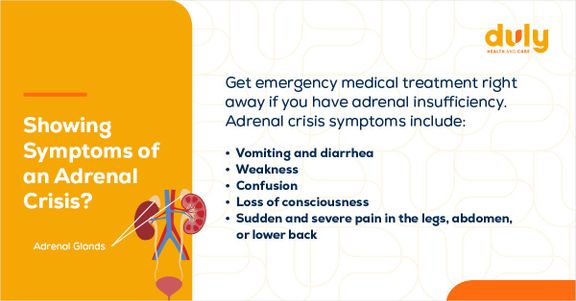Right now, your body is producing dozens of hormones.
Scientists have discovered more than 50 of these chemical messengers that travel throughout your bloodstream and deliver messages to your organs and tissues. From hunger to sex to mood, hormones play significant roles in how you feel, function, and respond to different situations.
One of these hormones is cortisol — often known as the stress hormone. However, responding to stress is just one of cortisol’s responsibilities. Cortisol reduces inflammation, controls blood pressure, and helps regulate blood sugar and metabolism (how your body converts food and drinks into energy).
Here are 6 things you need to know about cortisol.
Also read: “5 Hormone Imbalances to Be Aware Of”
1. You have your brain, pituitary gland, and adrenal glands to thank for cortisol.
Here’s how the process works:
- Your brain determines that your body is in need of cortisol. The area of your brain called the hypothalamus releases corticotropin-releasing hormone (CRH).
- CRH triggers the pituitary gland (a small gland in the brain) to make adrenocorticotropic hormone (ACTH).
- The ACTH tells your adrenal glands to release cortisol.
If there are problems with the hypothalamus or any of the glands involved in this process, your body might not produce cortisol the way it should.
2. Making enough cortisol is critical.
Cortisol affects nearly every organ system and tissue in your body, so it’s important that you make enough of it. If you don’t, you will develop a condition called “adrenal insufficiency.”
Depending on where in your body the problem occurs, adrenal insufficiency can either be primary (commonly known as “Addison’s disease”) or secondary. Primary originates in your adrenal glands, and is often due to damage from conditions like autoimmune diseases, infections, or cancer. The damage causes them not to produce enough cortisol. Secondary starts in your pituitary gland. It occurs when the gland doesn’t make enough ACTH, which results in your adrenal glands not getting the message to produce cortisol.
In most cases, low cortisol levels are due to abruptly stopping a steroid medication that has been used for a long time.
Both types of adrenal insufficiency can cause symptoms such as:
- Muscle weakness
- Weight loss
- Loss of appetite
- Fatigue
- Dizziness
- Gastrointestinal issues, like abdominal pain, diarrhea, nausea, and vomiting
Addison’s disease can also cause darkening of the skin, often visible on skin folds, elbows, knees, knuckles, toes, lips, and scars.
If you are concerned about your cortisol levels, schedule an appointment with your primary care provider or a Duly Health and Care endocrinologist.
3. Making too much cortisol could be trouble too.
It’s all about the balance. While your body can’t function properly without enough cortisol, it also can’t do so if you have too much of the hormone. High levels of cortisol for an extended period of time is called Cushing syndrome (also known as “hypercortisolism”).
Cushing syndrome can be caused by factors outside of your body, like taking certain medications (e.g., prednisone). Or, it could come from something inside your body, like a non-cancerous tumor in your adrenal glands or pituitary gland that’s making your adrenal glands produce too much cortisol.
There is also another form, called Cushing disease. It’s similar, but it doesn’t just involve cortisol. Cushing disease occurs when your pituitary gland makes too much ACTH, which then makes your adrenal glands produce large amounts of cortisol.
Not everyone experiences the same symptoms, but some of the more common symptoms include:
- Rounded face
- Excess fat above the collarbones, on the upper back, and around the base of the neck
- Weight gain, particularly in the upper body — but thin arms and legs
- A fatty hump located between the shoulders
- Wide and purple stretch marks under the arms and on the hips, breasts, and abdomen
- Muscle weakness
- Easy bruising
- Irregular periods and excess facial hair in women
It’s also possible not to have any symptoms at all, which can make Cushing syndrome a little difficult to diagnose sometimes.
4. Don’t panic if you find out that you have high or low cortisol levels.
There’s good news — you don’t need to live with the symptoms of too little or too much cortisol.
Adrenal insufficiency can’t necessarily be cured, but it can be managed. Low cortisol levels are treated with corticosteroids (hormone medications) that make up for your adrenal glands not producing enough. Addison’s disease can sometimes cause your adrenal glands to also not make enough of another hormone (aldosterone) so you may need medication to treat that, too.
Cushing syndrome, on the other hand, is usually curable. The exact treatment depends on the underlying cause.
For example, if you have a tumor that’s causing Cushing syndrome, your provider may remove it surgically. Or, if you have been taking steroids that have led to Cushing disease, your provider may recommend decreasing your dosage.
5. Skipping treatment isn’t a good idea.
Whether you have low or high levels of cortisol, it is critical to get treatment — even if you aren’t having any symptoms.
If adrenal insufficiency is left untreated, it could turn into adrenal crisis — a severe lack of cortisol that can lead to life-threatening low blood pressure, kidney failure, or shock. Adrenal crisis typically happens when your body is under physical stress, like after an injury, accident, severe infection, or surgery. It can be fatal without a corticosteroid shot, so it’s imperative to talk to your provider about having one on hand for emergencies.

Get emergency medical treatment right away if you have adrenal insufficiency. Adrenal crisis symptoms include:
- Vomiting and diarrhea
- Weakness
- Confusion
- Loss of consciousness
- Sudden and severe pain in the legs, abdomen, or lower back
Untreated Cushing syndrome can also lead to complications, such as infections, high blood pressure, increased cholesterol, or type 2 diabetes. It can even cause potentially life-threatening complications like heart attack, stroke, and blood clots.
6. There are multiple ways to check your cortisol levels.
If your provider suspects abnormal cortisol levels, they may order a blood test, urine test, or saliva test. Since cortisol levels fluctuate throughout the day, you may need to take more than one type of test.
Also read: “Endocrinology FAQ”
When it comes to your hormones, it’s a “better safe than sorry” situation. If you are concerned about your cortisol levels, don’t hesitate to talk to your provider. Abnormal cortisol levels can be dangerous, but they can also be treated — and the symptoms don’t need to stand in your way.
Health Topics:








